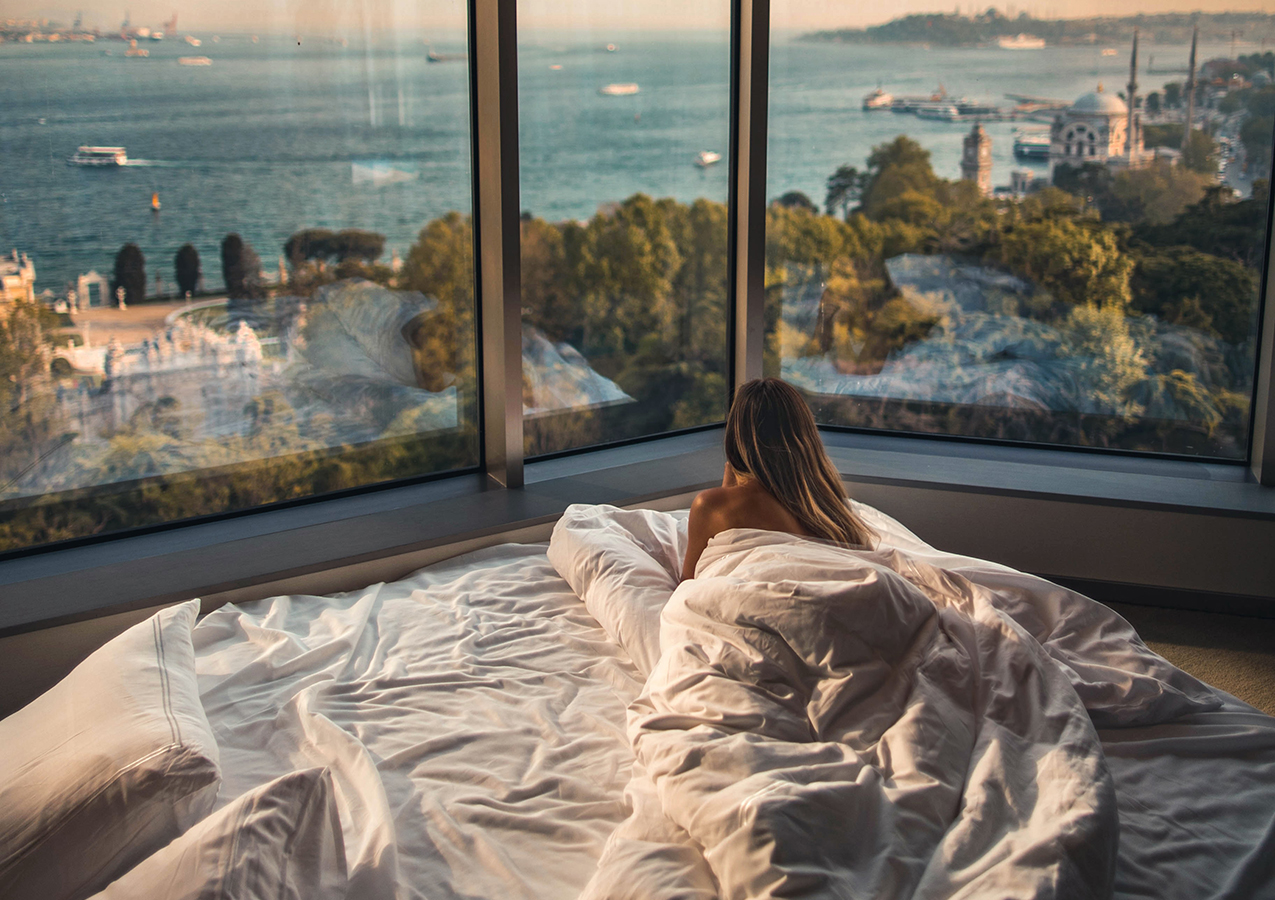As we get back into our work routines and kids go back to school, life can seem overwhelming. Juggling a busy life makes scheduling in self-care that much more important. My number one tip for balancing your busy life: making sure you get a restful night’s sleep.
Why You Need to Prioritize Sleep
When you sleep well (7-9 hours), your body has a chance to rest and restore energy. A good night’s sleep supports how you cope with stress, solve problems, or recover from illness. Sleep allows the brain and body to slow down and engage in processes of recovery, promoting better physical and mental performance the next day. Poor sleep can lead to a myriad of health concerns, affecting how you think and feel.
As the seasons change and the nights get cooler, our sleep becomes more important. Our bodies need to rest more than during the warmer months. It is a time to start storing up our energy and going within. Just as the moon governs the ocean’s tides, the waxing and waning also mirrors the rhythm of our own lives. We can look to the moon cycles as a source of understanding how to live more in harmony with nature.
Lack of sleep, or poor sleep, will deplete our energy and cause an imbalance in the cycles of yin yang energy. The yang is sunrise/day/movement/energy/light and the night is sunset/yin/rest/restore/darkness. To live in harmony with nature, we follow the movements of the earth, the seasons, sun, and moon.
Practices for Better Sleep
One easy practice for getting in harmony with nature and balancing our circadian rhythm, is light therapy. If you look at our natural world and how plant and animal life live, you will notice how flowers close in the evening and open with the warmth of the morning sun. The tides rise and fall based on the rotation of earth’s axis as gravity from the moon and the sun pull on the earth. Animals wake when the sun rises and sleep when the sunsets. This is the same circadian rhythm that will support a more energized day and restful night’s sleep.
The primary method to set your internal clock is light. Sunlight hits photoreceptors in our eyes which signal to our brain that it is daytime. Our brain, in turn, sends the message to our body and kickstarts metabolism in preparation for the day.
A simple practice:
Upon waking, let the morning sunlight shine on your face/body for 10-30 minutes preferably while practicing gratitude, doing a short meditation, or walking in nature.
In the evening when the sun is setting, let the evening sun once again shine on your face/body while you take a time to reflect on your day, do a meditation, or take a walk.
*If the sun is hot in the morning and you have sensitive skin, you can wear non-chemical zinc oxide sunscreen, but the early morning sun is usually mild.
Another benefit of being in the sun is naturally increasing your Vitamin D levels. Vitamin D may influence sleep by supporting the regulation of our circadian clocks. Recent research shows that Vitamin D may activate two genes associated with our circadian clock. Sunshine and darkness are the main regulators of our internal biological clocks. Sunlight is also the absolute best source of Vitamin D superior to any dietary sources, as the body produces its own response to exposure to sunlight
By aligning our body’s internal clock with your personal schedule, you can optimize your energy to support cells to work more efficiently when you need them to.
Healthy Bedtime Rituals
Avoid light at night especially from devices which give off blue light; computers, phones and tablets. As your circadian system is governed primarily by light, avoid these bright lights, as they give your brain conflicting signals between rest and activity.
Use the practice of exposing yourself to natural light in the morning, as sunlight signals to your brain and body to enter its active phase.
Try to fall asleep at the same time every night. This creates a healthy routine where your body gets into a rhythm.
Your circadian clock is most sensitive to light about one hour after you wake-up in the morning, and about two hours before usual bedtime. These times will change when your body naturally gets sleepy and is ready to fall asleep.
Factors that negatively alter your circadian rhythm include stress, jet lag, toxic overload, and hormonal imbalances. Thus, stress reduction practices like meditation, exercise, acupuncture, and yoga are helpful.
If you can go to bed before 10 PM, it will let your adrenals know it is time to rest.
Avoid caffeine and stimulants after 2pm.
If you need extra support, you can ask your health care provider about incorporating natural supplements like melatonin, GABA, theanine, and taurine.
Sweet dreams!
With love,
Neka

